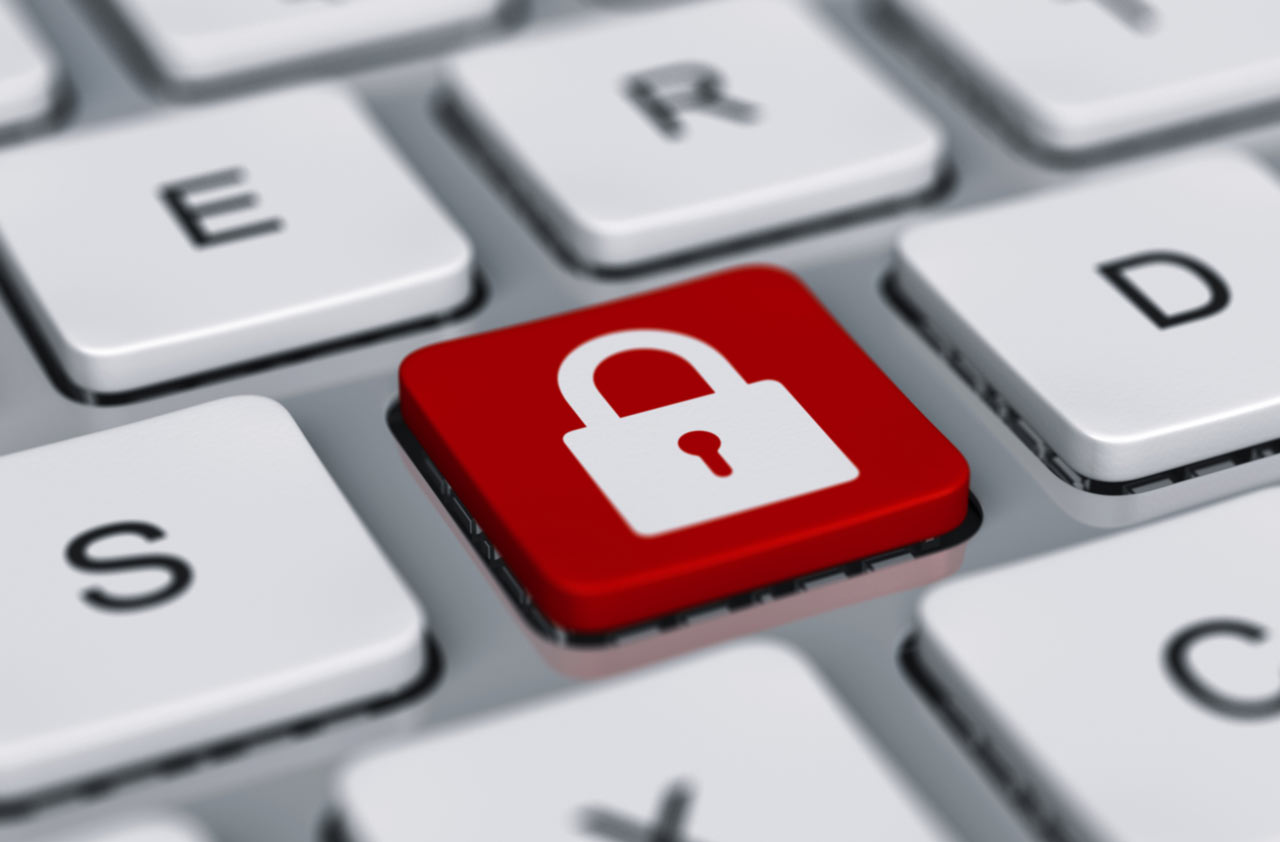Top 5 Ways to Secure Your Personal Information
Keeping your personal information out of the wrong hands can be as obvious as using strong passwords to as tricky as not posting about your birthday plans on Facebook.


Profit and prosper with the best of Kiplinger's advice on investing, taxes, retirement, personal finance and much more. Delivered daily. Enter your email in the box and click Sign Me Up.
You are now subscribed
Your newsletter sign-up was successful
Want to add more newsletters?

Delivered daily
Kiplinger Today
Profit and prosper with the best of Kiplinger's advice on investing, taxes, retirement, personal finance and much more delivered daily. Smart money moves start here.

Sent five days a week
Kiplinger A Step Ahead
Get practical help to make better financial decisions in your everyday life, from spending to savings on top deals.

Delivered daily
Kiplinger Closing Bell
Get today's biggest financial and investing headlines delivered to your inbox every day the U.S. stock market is open.

Sent twice a week
Kiplinger Adviser Intel
Financial pros across the country share best practices and fresh tactics to preserve and grow your wealth.

Delivered weekly
Kiplinger Tax Tips
Trim your federal and state tax bills with practical tax-planning and tax-cutting strategies.

Sent twice a week
Kiplinger Retirement Tips
Your twice-a-week guide to planning and enjoying a financially secure and richly rewarding retirement

Sent bimonthly.
Kiplinger Adviser Angle
Insights for advisers, wealth managers and other financial professionals.

Sent twice a week
Kiplinger Investing Weekly
Your twice-a-week roundup of promising stocks, funds, companies and industries you should consider, ones you should avoid, and why.

Sent weekly for six weeks
Kiplinger Invest for Retirement
Your step-by-step six-part series on how to invest for retirement, from devising a successful strategy to exactly which investments to choose.
Data breaches leaked more than 4 billion records in 2016, according to the IBM X-Force Threat Intelligence Index. While people are getting better at recognizing scams and information hacking, taking preventive measures can help avoid unfortunate problems in the future. Oftentimes you can’t control how third parties use your information, so it’s up to you to do what you can to protect yourself. Here are the top five ways to avoid security breaches:
1. Be shrewd with your passwords.
Create passwords or PINs (personal identification numbers) either out of a random mix of letters and numbers or by using words and number combinations that are only meaningful to you. Throw in some capitals and special characters, such as @ or #. Doing so makes it harder for identity thieves to discover these codes, and makes it easier for you to prevent identity theft. Do not use the same password for every account, form, website or signup. Do not share your passwords with anyone as a practice. Try to come up with passwords and reminders for them that only you will know. If you choose, you can use an app such as Dashlane or LastPass to store your passwords. Or you could store them on a jump drive, or even put them into cloud storage at your own risk. Unless you intend to keep password information in a lockbox or a safe, it is risky to write the passwords down on paper.
2. Shred any documents with identifying information.
Once your trash leaves your property, it is not in your control, and thieves know it. Shred any pre-approved credit card or credit offers, bank statements, returned checks or sensitive information to prevent thieves from applying for credit in your name or trying to use any checks. Make sure that your shredder does not create strips of paper that are easily reattached.
From just $107.88 $24.99 for Kiplinger Personal Finance
Become a smarter, better informed investor. Subscribe from just $107.88 $24.99, plus get up to 4 Special Issues

Sign up for Kiplinger’s Free Newsletters
Profit and prosper with the best of expert advice on investing, taxes, retirement, personal finance and more - straight to your e-mail.
Profit and prosper with the best of expert advice - straight to your e-mail.
3. Be careful when giving out personal information.
Identity thieves may call posing as banks or government agencies. To prevent identity theft, do not give out optional or irrelevant personal information, such as your phone number or email, in stores, online or over the phone, unless you initiated the call. As information sharing becomes more rampant and restrictions loosened, you risk losing privacy if you volunteer those pieces of personal information. Also, report any suspicious activity to the proper authorities, such as your local police, or if more serious, to The Federal Bureau of Investigation (FBI) at 202-324-3000 or online at https://tips.fbi.gov.
4. Carry only what you absolutely need.
Do not take your Social Security card or extra credit cards, checks, debit cards, department store cards or gas cards with you on an everyday basis. And when you must have your birth certificate or passport with you, such as when you’re traveling, take extra precautions in public places, such as keeping these documents on your person in inconspicuous carrying cases and out of your hands.
5. Do not post sensitive personal information on the Internet or on social media websites.
The world is becoming more digital and interconnected, which has increased both domestic and international criminal activity. Thieves are counting on complacency. Once information is in the public sphere, it is difficult to remove it. Keeping personal information, such as your address, date of birth, telephone number and email, private can help you stay safe.
Did you know? If you even suspect that your credit/debit cards or bank information has been compromised, then you should immediately contact the fraud hotlines and support systems of your providers. The best ones will have full liability protection, fraud suspicion alerts and proactive security measures in place. If you are not getting what you want or did not realize what is offered or included, then it may be time for a change.
Profit and prosper with the best of Kiplinger's advice on investing, taxes, retirement, personal finance and much more. Delivered daily. Enter your email in the box and click Sign Me Up.

Justin J. Kumar embraces a proactive, systematic investment management approach with a customized, proprietary system to help guide his clients toward their financial goals.
-
 Nasdaq Leads a Rocky Risk-On Rally: Stock Market Today
Nasdaq Leads a Rocky Risk-On Rally: Stock Market TodayAnother worrying bout of late-session weakness couldn't take down the main equity indexes on Wednesday.
-
 Quiz: Do You Know How to Avoid the "Medigap Trap?"
Quiz: Do You Know How to Avoid the "Medigap Trap?"Quiz Test your basic knowledge of the "Medigap Trap" in our quick quiz.
-
 5 Top Tax-Efficient Mutual Funds for Smarter Investing
5 Top Tax-Efficient Mutual Funds for Smarter InvestingMutual funds are many things, but "tax-friendly" usually isn't one of them. These are the exceptions.
-
 Social Security Break-Even Math Is Helpful, But Don't Let It Dictate When You'll File
Social Security Break-Even Math Is Helpful, But Don't Let It Dictate When You'll FileYour Social Security break-even age tells you how long you'd need to live for delaying to pay off, but shouldn't be the sole basis for deciding when to claim.
-
 I'm an Opportunity Zone Pro: This Is How to Deliver Roth-Like Tax-Free Growth (Without Contribution Limits)
I'm an Opportunity Zone Pro: This Is How to Deliver Roth-Like Tax-Free Growth (Without Contribution Limits)Investors who combine Roth IRAs, the gold standard of tax-free savings, with qualified opportunity funds could enjoy decades of tax-free growth.
-
 One of the Most Powerful Wealth-Building Moves a Woman Can Make: A Midcareer Pivot
One of the Most Powerful Wealth-Building Moves a Woman Can Make: A Midcareer PivotIf it feels like you can't sustain what you're doing for the next 20 years, it's time for an honest look at what's draining you and what energizes you.
-
 I'm a Wealth Adviser Obsessed With Mahjong: Here Are 8 Ways It Can Teach Us How to Manage Our Money
I'm a Wealth Adviser Obsessed With Mahjong: Here Are 8 Ways It Can Teach Us How to Manage Our MoneyThis increasingly popular Chinese game can teach us not only how to help manage our money but also how important it is to connect with other people.
-
 Looking for a Financial Book That Won't Put Your Young Adult to Sleep? This One Makes 'Cents'
Looking for a Financial Book That Won't Put Your Young Adult to Sleep? This One Makes 'Cents'"Wealth Your Way" by Cosmo DeStefano offers a highly accessible guide for young adults and their parents on building wealth through simple, consistent habits.
-
 Global Uncertainty Has Investors Running Scared: This Is How Advisers Can Reassure Them
Global Uncertainty Has Investors Running Scared: This Is How Advisers Can Reassure ThemHow can advisers reassure clients nervous about their plans in an increasingly complex and rapidly changing world? This conversational framework provides the key.
-
 I'm a Real Estate Investing Pro: This Is How to Use 1031 Exchanges to Scale Up Your Real Estate Empire
I'm a Real Estate Investing Pro: This Is How to Use 1031 Exchanges to Scale Up Your Real Estate EmpireSmall rental properties can be excellent investments, but you can use 1031 exchanges to transition to commercial real estate for bigger wealth-building.
-
 Should You Jump on the Roth Conversion Bandwagon? A Financial Adviser Weighs In
Should You Jump on the Roth Conversion Bandwagon? A Financial Adviser Weighs InRoth conversions are all the rage, but what works well for one household can cause financial strain for another. This is what you should consider before moving ahead.